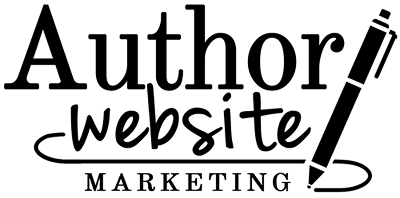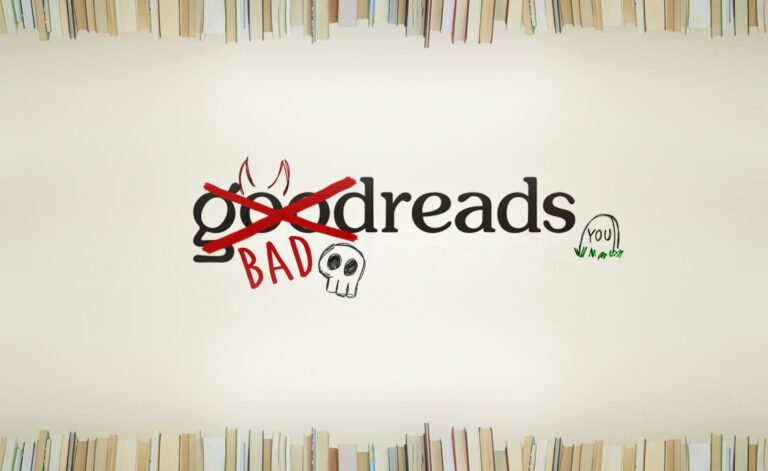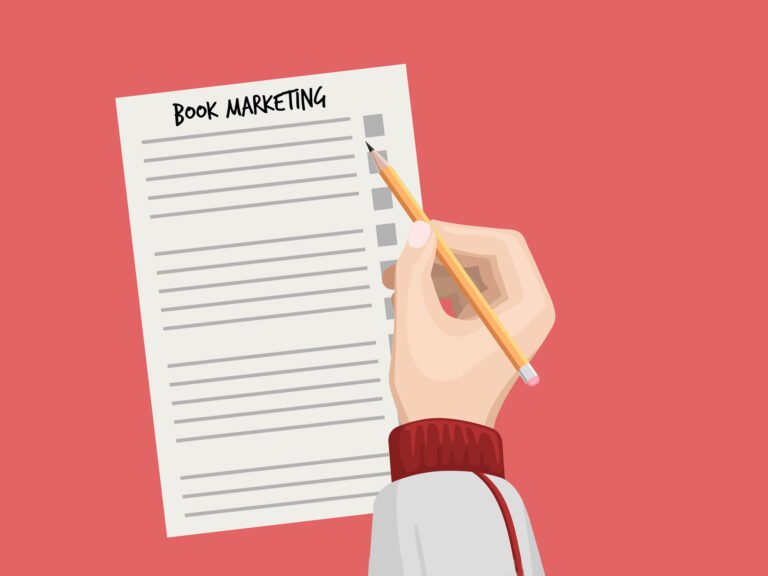Author Websites: What are the Advantages and Disadvantages?
If you’re a debut/first-time author, wondering whether or not you need an author website, here’s an honest guide to the pros and cons involved.
Disadvantages of Author Websites
– Upfront expense
This is the big one: cost. An author website – specifically, a good author website – can be expensive. It’s a big lump sum you’ll have to pay up front, so it’s worth reasoning out whether it makes business sense to commit.
– Ongoing costs
The costs don’t stop after the initial design/build cost of an author website, either. You’ll need to pay your domain registration fee and your web host costs for as long as your website exists. However, this could be as little as £5 ($5 USD) per month, depending on the hosting package you select.
Be aware that some web designers will artificially inflate those monthly costs in the name of “taking care of your website”. You should never pay hosting fees to your website designer; you should instead pay directly to a domain registrar (e.g. GoDaddy) and a web host (e.g. Hostinger).
DIY website builder sites like Squarespace can also come with a sting in the tail, where it’s “free” to launch your website, but you end up paying an inflated monthly cost. It’s worth doing your sums and calculating how much you’ll actually pay over the next 3–5 years and consider whether Squarespace is a good deal in the long run.
– Poor ROI
When it comes to author websites, the return on investment (ROI) is not particularly strong. Is it going to sell any books for you? Probably not.
Certainly, if you compare it to advertising, where you’re (hopefully) shifting units of your book as a direct result of spending money, a website is not moving the needle.
Indeed, having a great author website (and a connected mailing list) is more of a long-term branding opportunity. You may decide you can’t afford to spend money on anything as wishy-washy as “branding”.
– Tech headaches
Here’s a tough one: sometimes websites break. Sometimes it’s because you pressed the wrong button. Sometimes it’s because you got hacked. Sometimes it’s just because there was some weird glitch.
Most authors are happier in the world of books and writing, rather than in the world of coding and widgets. If your website goes wrong, you’d probably prefer not to deal with the tech headache. (Unless, of course, you have a friendly neighbourhood website designer to fix it for you. *winning smile*)
– Additional admin of updating it
Even if you get to grips with the tech involved with updating your website on a regular basis, you still have to… update it on a regular basis.
Ugggghhh. More admin. More time away from writing. I know, it sucks.
However, the reality of life as an author in the 2020s is that you’re responsible for marketing your book, not just writing it. (Let’s all take a moment to envy the authors who were publishing in the 1990s. They didn’t even know what TikTok was! Lucky.)
A strong author website is an essential part of book marketing and, yes, that includes keeping it updated.
– Social media would do just as well
If you have a social media platform you’re comfortable with, why not create a new account, “Jane Smith Author”, or modify your existing one, so that it gives readers information about you and your books? That’s basically the same as an author website.
Errrm. Ish.
It’s true that some people are social media devotees and would much prefer to follow you on TikTok/Facebook/Instagram than visit a separate website. However, be careful of overestimating how many of your readers are on that particular social media platform.
Social media is extremely siloed. If you’re not on TikTok, for example, you have no idea what’s happening on there.
A social media account also doesn’t quite have the same professionalism as an author website. Which brings me to…

Advantages of Author Websites
+ Legitimacy
Have you ever got a recommendation for a business (a roofer, a surveyor, a tree surgeon) and gone online to find very little trace of them? They don’t even have a website! Suddenly the recommendation you received feels a little flimsy. Are they even legit?
This is the world we live in. If you don’t have a website, you lack legitimacy. That goes for tree surgeons and it goes for authors, too.
+ Branding
An author website is a good way to begin building your brand.
Shudder. “Branding” is such a corporate buzzword. What does it actually mean?
Branding, in marketing terms, is not a way to directly sell your books – not yet, anyway. Instead, it’s making potential readers aware of the book and of you as an author. It’s whisking up positive feelings in their bellies. It’s setting the groundwork, so that one day, maybe, they’ll buy your book.
Think about car advertising: imagine one of those way-too-long commercials, scored with classical music, featuring a handsome couple in a top-of-the-line car, driving through a mysteriously-deserted city. You’ll also have encountered the same shiny, shiny car splashed across a double-page spread in magazines or racing through social media ads.
Does this car advertising prompt anyone to immediately go out and purchase a car? No. It functions as branding. It’s making you aware of the car company. It’s promoting positive associations (“ooh, so shiny, wouldn’t I love to look like the person in that ad?”). Branding is the softest of soft sells.
I know, this all seems terribly wishy-washy. But branding works, and if you want an author brand, you need a good website.
+ A means for readers to contact you
If you’re allergic to marketing, you may be quietly dying inside right now. (I don’t caaaare about branding!) So I’ll tell you one of the nicest reasons you should have an author website:
Praise.
An author website with a contact form allows readers all over the world to get in touch with you. Here are three real messages from strangers I’ve received through my contact form:
– A reader telling me she stayed up all night reading my novel and it was her favourite book she’d read all year.
– Someone who read a short story I had published in a magazine telling me that reading my short story was like watching a gymnast achieve a perfect score.
– A magazine editor (from a bigtime publishing house) asking me to submit short stories to her magazine, which was otherwise closed to submissions from writers. (Later, I did submit a story, got it published, and made some money.)
If I didn’t have an author website, I never would have received any of those messages.
+ A home on the internet that you own
Ultimately, having an author website means owning your own home on the internet. You won’t be buffeted by the headwinds of billionaires squabbling on social media. It doesn’t matter to you what Musk or Zuckerberg are doing.
This is your own little space and it’s where readers always know they’ll be able to find you.
+ A way to begin building your newsletter
If you’re concerned about ROI, as above, and worried that your author website isn’t making you enough sales, it’s worth using your website in conjunction with a newsletter.
I know that technically you can have an author newsletter without a website, but it’s notoriously hard to build a list of readers’ email addresses without a place for them to subscribe.
I strongly recommend that every author begin a monthly email newsletter that goes out to their readers. This is how you build a relationship with your readership and ultimately sell books.
+ A way to reward your readers
If you do want to start building an email list of readers, the best way to do it is to give away bonus chapters, novellas, short stories, and other extra content. The easiest way to do this is via your author website.
Best of all, readers love this kind of stuff! Who doesn’t want to find a secret extra chapter to read once you’ve finished a great book?
+ A universal link to your books
Figuring out which web link to your books you should provide is weirdly stressful. Do you give out the Amazon link, even though a lot of people hate Amazon? Do you give out a different retailer link – but don’t more people actually buy from Amazon? What if some readers are in different countries? What then?
The answer is an author website, with a page dedicated to your book, listing ALL the relevant retailer links, so prospective readers can pick whichever they like. Phew!
+ A place to house your media kit
When my first novel, Dead Ringer, was published, I went to my local BBC studios to be interviewed on the radio. What was a surprising was just how much the interviewer knew about my life.
How did they know so much? Answer: they’d visited my website.
Later, I was a key note speaker at a conference. The organisers never even asked me for a photo or a bio, but both of those things appeared on their website and programme.
How? They’d grabbed the info off my website.
If you know you’ll be interviewed or make media appearances, it’s much, much easier (for you, and for the interviewer) if all relevant information about you and about your books is accessible on your website.
I hate to say it, but we’re back to branding. When you start acting professionally, people start treating you professionally and you get more opportunities.







